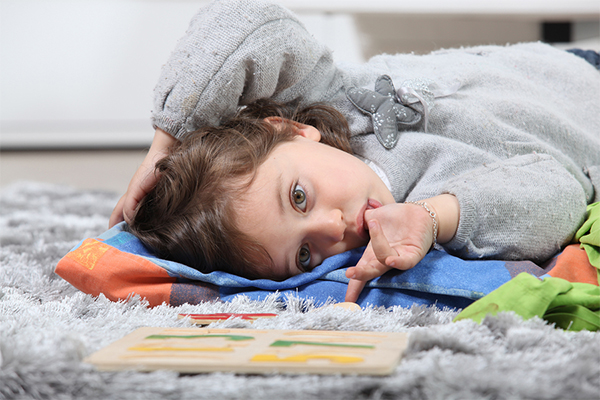Does your child have a habit that he or she just can’t seem to break? Thumb sucking and nail biting are among the most common habits children may develop. At a young age, these simple habits can be considered a comfort measure, but if continued they could be a reason for concern.
Are these habits normal?
Before telling your child to stop, you should try to understand why these behaviors form in the first place. Habits like thumb sucking and nail biting are very common among children. Thumb sucking may be a calming or soothing mechanism, and nail biting may be a sign of anxiety or a form of stress relief. Your child may be doing either or both of these out of boredom or mindlessness meaning they might not even realize they’re doing it!
When should I be concerned?
Most of these habits tend to fade out as a child grows older, but sometimes they need more attention. If you catch your child displaying these habits in moderation, you shouldn’t be too worried. As long as they aren’t injuring themselves, just let them cope with stress in a way that makes them comfortable.
However, you should be concerned if a certain habit leads up to any of the following:
- Bloody or infected fingers.
- Negative effects in the child’s social relationships.
- Interference in daily life and functioning.
- Dental problems.
- More unusual habits, such as pulling out hair.
These could be symptoms of a more severe condition for which you should consult a physician.
How can I help my child to stop?
When the time comes to wean a child off of his or her bad habits, parents can be a big help.
- Try not to nag or punish. Scolding and punishment are more stress inducing for both you and your child, causing him or her to continue the behavior.
- Use positive reinforcement. Instead of noticing when your child is displaying a habit, praise or reward him or her during the times when he or she is not doing it. This will let the message sink in much better than being negative.
- Address the stress/anxiety. If you think your child’s bad habits are signs of nervousness, talk to him or her about it. Encourage them to express their feelings through conversation or other healthy outlets.
- Distract them with other activities. Keeping your child’s mind and hands busy can help to distract him or her from putting his or her fingers in the mouth. Focusing on other activities can also help to alleviate stress and let out pent-up energy.
As the only facility in the area dedicated exclusively to children, we know how to best meet the unique needs of your child. For more information about CHOG, please visit our website at augustahealth.org/chog or call 706-721-KIDS (5437).
Sources: BabyCenter, KidsHealth, Mayo Clinic




